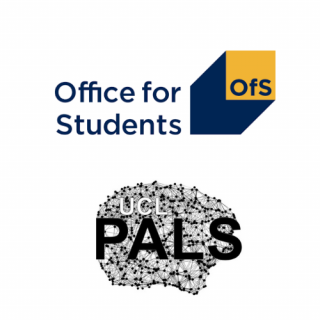IMPACTS peer research project
University can be a challenging time, with a number of students experiencing mental health problems or significant challenges.
From looking at who does access university and NHS support, we know particular groups of students face particular barriers (e.g. students from particular demographic groups). To improve support, it is important we understand what factors prevent students seeking help in the first place, and their experiences of care when they have accessed support.
IMPACTS is a peer-research study, which means students lead the research. Student participants are invited to complete an online survey of their experiences at university. Sub-samples of students are then invited to a follow up interview with a peer researcher to discuss these experiences in more detail (based on the focus of the peer researcher's project).
In this video, PsychUP for Wellbeing’s Coordinating Director, Dr Laura Gibbon, and IMPACTS peer researchers Amaani Ahmed, Lyndsey Li and Gladys Hui explain why the peer research approach is such an important tool for understanding students’ experiences.
Individual projects which are part of IMPACTS
Seventeen peer researchers have completed projects so far. Over 130 student participants have been interviewed about their experiences.
The projects have been focussed in three broad areas:
- Particular demographic groups (e.g. Chinese students; South Asian students; Black, Asian and ethnic minority students who went to a comprehensive school; gay male students)
- Experiences of students who have had difficult experiences (e.g. students with a suicidal friend; students who have experienced misconduct of an intimate nature) or specific experiences (e.g. being a student carer) at university
- Experiences of students with particular mental health problems (e.g. social anxiety; depression; eating disorders; self harm) or physical health problems (e.g. Chronic Fatigue Syndrome/ME)
- Experiences of students who have not accessed support services for their mental health
Findings from the IMPACTS projects and recommendations from the peer researchers have influenced what we have done in London as part of the Student Mental Health Partnerships project, and informed our plans for other future work.
- What is this type of research?
This is a qualitative interview study.
What are they for?
These studies are for building a more detailed understanding of how people think and feel about a certain research topic, such as a new mental health support provision. While questionnaires give a broad, quantitative sense of trends across a population, qualitative interviews allow researchers to delve deeper into the personal, subjective accounts of individuals.
How do they work?
Interviews can take place in varied settings: in person, over the phone, or on video-calls. They give participants the chance to speak their mind about the topic. Interviews might be highly structured, with many fixed interview questions; or semi-structured, allowing for longer elaborations; or even unstructured, resembling a normal conversation. Interviews can also take place in groups, known as focus or consultation groups, to allow for interaction of ideas between participants. There are many methods of analysis for these interviews; the most commonly used in psychology may be thematic analysis, which maps the common themes that emerge across participants' perspectives.
 Close
Close


